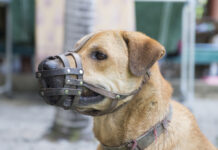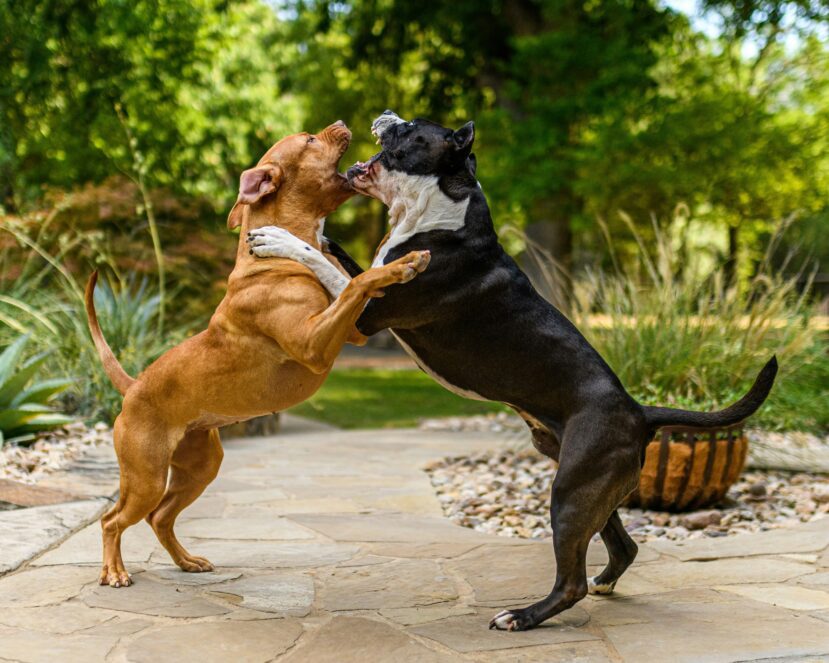Last Updated on March 28, 2024 by Dogs Vets
Preventing Dog Bites in Louisville: Effective Strategies to Reduce Injuries from Animal Attacks
In Louisville, a city known for its love of pets and outdoor activities, the issue of dog bites and animal attacks is a serious concern for residents and visitors alike.
While many dogs are friendly and well-behaved, even the most docile animal can bite if threatened, scared, or provoked. The consequences of a dog bite can be severe, ranging from minor scratches and bruises to serious infections, disfigurement, and emotional trauma.
To effectively address this issue and reduce the incidence of dog bites in Louisville, it is essential to understand the factors contributing to these incidents and develop comprehensive prevention strategies.
This includes efforts by pet owners to properly train and socialize their dogs and public education campaigns to promote responsible pet ownership and safe interactions with animals.
However, even with the best prevention efforts, dog bites can still occur, and in these situations, seeking the guidance of Louisville experts in personal injury cases can be crucial in securing the support and compensation needed to recover and move forward.
Understanding the Causes of Dog Bites
To effectively prevent dog bites in Louisville, it is vital to understand the various factors that can contribute to these incidents. Some of the most common causes of dog bites include:
- Fear or anxiety: Dogs may bite if they feel threatened or scared, particularly if they are cornered or cannot escape a situation. This can occur if a person approaches a dog too quickly or aggressively or if the dog is in an unfamiliar or stressful environment.
- Protection of territory or possessions: Dogs may bite to defend their home, yard, or personal belongings, such as toys or food bowls. This can be particularly problematic if a dog needs to be adequately trained to share or relinquish items on command.
- Pain or illness: Injured or sick dogs may be more likely to bite, as they may be more sensitive to touch or lash out in response to pain.
- Lack of socialization or training: Dogs that have not been adequately socialized with people and other animals or have not received adequate obedience training may be more likely to bite out of fear or aggression.
The Role of Responsible Pet Ownership in Preventing Dog Bites
One of the most effective ways to prevent dog bites in Louisville is through responsible pet ownership. This includes properly training and socializing dogs from a young age and providing adequate exercise, nutrition, and veterinary care.
Pet owners should also be aware of their dog’s body language and behavior and take steps to address any signs of fear, anxiety, or aggression before they escalate into a bite.
This may include working with a professional dog trainer or behaviorist to develop a tailored training plan and avoiding situations that may trigger a negative response from the dog.
Pet owners should also ensure that their dogs are adequately secured and supervised in public, either on a leash or in a fenced area. This can help prevent the dog from running away or approaching strangers, increasing the risk of a bite.
The Importance of Public Education and Awareness
Educating the public on safe interactions with dogs is a pivotal strategy for reducing dog bite incidents in Louisville.
Initiatives should focus on providing comprehensive guidance for both children and adults on how to approach and engage with dogs safely, emphasizing the importance of asking for the owner’s permission before interacting with an unfamiliar dog and educating on body language, such as avoiding direct eye contact, which dogs might perceive as threatening and advising against running or making sudden movements that could trigger a dog’s instinct to chase.
Awareness campaigns can significantly emphasize the steps to take if a dog becomes aggressive, including using items like a bag or jacket as a barrier or adopting a defensive posture if knocked down.
Highlighting the importance of promptly reporting dog bites and seeking immediate medical attention is crucial in preventing infections and ensuring effective recovery. Such educational efforts can foster a culture of respect and safety around dogs, contributing to the well-being of the community and its canine members.
The Role of Local Authorities in Promoting Dog Bite Prevention
Local authorities, such as animal control agencies and law enforcement, also play a critical role in preventing dog bites in Louisville. This may include enforcing leash laws and other regulations related to pet ownership and investigating and responding to reports of dangerous or aggressive dogs.
Animal control agencies can also provide resources and support for pet owners, such as low-cost vaccinations and spay/neuter services, as well as training and education programs to promote responsible pet ownership.
In addition, local authorities can work with community organizations and schools to develop targeted outreach and education campaigns, particularly in areas with high rates of dog bites or where there are concerns about specific breeds or types of dogs.
The Importance of Proper Medical Care for Dog Bite Victims
If a dog bite occurs, the victim must seek medical care immediately. Even minor bites can become infected or lead to severe complications if not adequately treated.
The first step in treating a dog bite is cleaning the wound thoroughly with soap and water and applying pressure to stop bleeding. If the wound is deep or there are signs of infection, such as redness, swelling, or discharge, the victim should seek medical attention immediately.
In some cases, dog bite victims may also require stitches, antibiotics, or other medical interventions to prevent infection and promote healing.
Follow-up care and monitoring may also be necessary to ensure that the wound is healing correctly and to address any ongoing physical or emotional effects of the attack.
The Importance of a Comprehensive Approach to Dog Bite Prevention
It is crucial to have a comprehensive approach to prevent dog bites in Louisville as it helps to keep the community safe and promote harmonious coexistence between people and pets.
To achieve this, it is essential to promote responsible pet ownership, educate the public on how to safely interact with dogs, and provide accessible pet care and training resources. These measures are critical components of an effective prevention strategy.
Initiatives should prioritize expanding affordable pet services in underserved areas and launching awareness campaigns to prevent dog bites. Enforcing leash laws and holding pet owners accountable for their pet’s behavior is also essential.
Furthermore, providing support to bite victims, such as medical and legal assistance, can help their recovery. By adopting a comprehensive approach addressing these issues, we can significantly reduce dog bite incidents and make Louisville a safer and more welcoming place for residents and their pets.
Fact Check
We strive to provide the latest valuable information for pet lovers with accuracy and fairness. If you would like to add to this post or advertise with us, don’t hesitate to reach us. If you see something that doesn’t look right, contact us!























